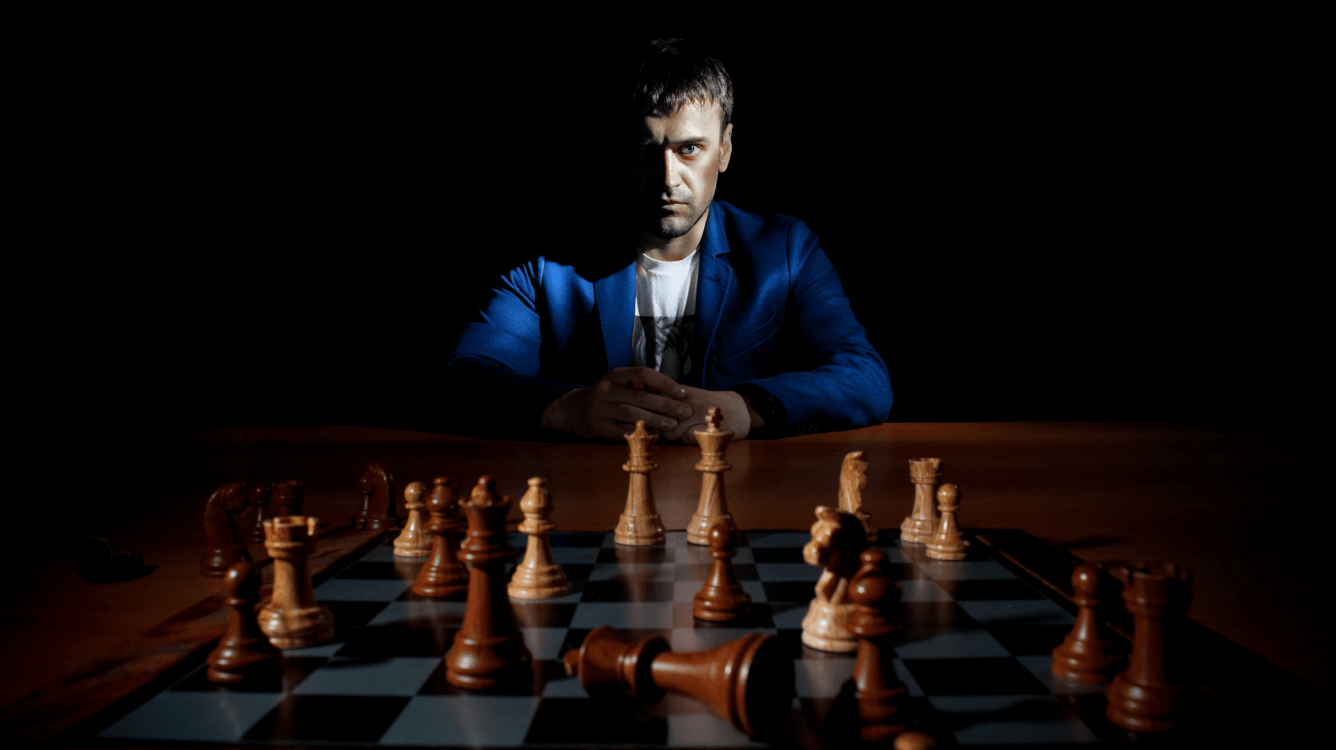Chess is a fascinating ancient game that has been enjoyed by people around the world for centuries. It can be played for fun, but it also has a variety of cognitive and social benefits. Not only does it help to improve analytical thinking and problem-solving skills, but it can also enhance memory retention and increase concentration levels. Additionally, playing chess can stimulate creativity as players learn to think outside the box.
The purpose of this article is to offer a complete guide for beginners who want to master the game of chess. Whether you are a novice or an intermediate player, this guide will provide you with all the tips and strategies necessary to improve your skills and succeed in the game. By the end of the article, you will have a better understanding of the rules and techniques required to play chess, and you’ll be equipped with resources to aid you in your chess-playing journey. So, let’s dive in and explore all that chess has to offer!
Getting Started with Chess
Chess is an ancient and popular game that requires strategic thinking, patience, and skill. If you’re a beginner looking to understand the basics of chess, here’s what you need to know to get started.
The chessboard is an 8 x 8 square, alternate black and white squares. The board is positioned so that each player has a white square located on their bottom-right side. The pieces are set up in a specific order, called the starting position.
Each player has 16 chess pieces consisting of eight pawns, two knights, two bishops, two rooks, one queen, and one king. Each piece moves differently. A pawn can move one or two squares up the board on its first move and one square on all subsequent moves. A bishop moves diagonally on the board, and a knight moves in L-shaped patterns. A rook moves straight vertically or horizontally, while the queen is the most powerful piece and moves straight in all directions. The king moves only one square at a time in any direction.
The objective of the game is to checkmate the opponent’s king. A checkmate occurs when the king is attacked and cannot be protected by any other piece or escape to a safe square on the board. Each turn, players take turns moving their pieces according to the rules mentioned above.
Remember that this is just the beginning. Understanding the layout and function of pieces and basic moves is essential to learn advanced chess strategies. With patience and practice, you can enjoy playing chess as a hobby or a professional.
Strategies for Chess
If you are a beginner chess player, mastering the game can seem like a daunting task. However, there are several strategies, tips, and tricks that you can use to improve your gameplay and increase your chances of winning. Here are some key strategies that you can start using today:
1. Control the Center of the Board
The center of the board is the most crucial area of the chessboard. Placing your pieces in the center of the board allows them to control more squares and gives them greater mobility. As a beginner, try to focus on occupying the center as much as possible.
2. Plan Your Moves in Advance
Before making a move, take a moment to assess the board and plan your next few moves. Consider your opponent’s possible responses and prepare accordingly. This will help you to stay ahead of your opponent and anticipate their moves.
3. Protect Your Pieces
Losing a piece can be a severe setback in chess. Always keep an eye on your pieces and make sure they are protected. If one of your pieces is threatened, either move it to a safe square or defend it with another piece.
4. Develop Your Pieces
Developing your pieces early is essential in chess. Try to move each of your pieces at least once in the opening phase of the game, and put them on squares where they have greater mobility and control.
5. Castle Early
Castling involves moving your king to a safer position on the board. It can be a critical move that can protect your king and give your rook greater mobility. As a beginner, always try to castle early in the game.
By implementing these basic strategies, you will start to see improvements in your gameplay and winning more games. So, try them out and see which work best for you.
Advanced Chess Techniques
Chess is a game of strategy and skill, which requires consistent practice and dedication to master. Once the basics are covered, it’s time to explore advanced chess techniques and strategies that can help you dominate the game.
Some of these advanced techniques include:
- Castling: This move allows you to protect your king while mobilizing your rook for an attack. Castling is an essential technique and should be mastered early on.
- En passant: This move allows a pawn to capture an opponent’s pawn that has just moved two squares forward. It’s a tricky move that can surprise your opponent.
- Pawn promotion: When a pawn reaches the eighth rank, it can be promoted to any other piece (except for a king). This technique can be used to turn the game around or secure a win.
Aside from mastering these techniques, analyzing your gameplay is crucial to identifying your strengths and weaknesses and adapting strategies accordingly. Analyzing your gameplay involves reviewing your past games to see where you can improve and identifying patterns and tendencies.
One way to analyze your games is to use chess notation. Chess notation is a system of recording chess moves, which can then be reviewed and analyzed later on. Combining this with self-reflection and guidance from more experienced players will help you develop better strategies and improve your gameplay over time.
Overall, mastering these advanced chess techniques and analyzing your gameplay can take time, patience, and consistent practice. But with dedication and the right mindset, you can become a skilled and strategic chess player who can dominate the game.
Chess Resources for Beginners
If you’re serious about mastering chess, it’s crucial to have access to the right resources. Fortunately, there are many books, websites, and online communities that provide valuable insights and strategies for players at all levels. Here are some of the best chess resources for beginners:
Books:
- “Chess for Kids” by Michael Basman – A comprehensive guide to chess with fun illustrations and easy-to-follow instructions.
- “Bobby Fischer Teaches Chess” by Bobby Fischer – A classic chess book that covers the fundamentals of the game.
- “The Art of Attack in Chess” by Vladimir Vukovic – A must-read for players interested in developing aggressive chess strategies.
Websites:
- Chess.com – A leading chess platform that offers tutorials, puzzles, and games for players of all levels.
- Lichess.org – A free, open-source chess platform that features online games and training tools.
- Chesskids.com – A fun and interactive chess website designed specifically for kids.
Online Communities:
- r/chess – A popular subreddit for chess enthusiasts to discuss games, strategies, and news.
- Chess Club – An online community that features thousands of players from around the world.
- Chessgames.com – A forum for discussing chess games and tactics.
Joining an online chess community or participating in tournaments can provide beginners with the opportunity to enhance their skills and learn from other players. These resources can be a valuable tool in a player’s journey towards mastering chess.
Conclusion
In conclusion, mastering the game of chess requires patience, practice, and perseverance. By following the tips and strategies outlined in this guide, beginners can improve their gameplay and become proficient chess players.
One of the most important takeaways to remember is to start with the basics and build a strong foundation. Understanding the rules, pieces, and board layout is essential to playing chess. From there, beginners can gradually learn more advanced strategies and techniques to enhance their gameplay.
Another key takeaway is the importance of analyzing games and identifying areas for improvement. By analyzing their gameplay and identifying their strengths and weaknesses, players can adapt their strategies and improve over time. Joining online chess communities and tournaments can also be a valuable resource for beginners.
In conclusion, we encourage readers to practice regularly, be patient with themselves, and continue to learn and improve. Becoming a master at chess is a journey that requires commitment and effort, but with practice and dedication, anyone can become a proficient player.
FAQs
Q: What is the ultimate objective of chess?
A: The objective of chess is to checkmate the opponent’s king, which means putting the king in a position where it is under attack and cannot move to a safe square.
Q: Are there any limitations on piece movements in chess?
A: Yes, each piece has its unique way of moving on the board. For example, the knight moves in an L-shaped pattern while the bishop moves diagonally. Additionally, pieces cannot move through other pieces or land on a square occupied by a friendly piece.
Q: What is the ideal time limit for a chess game?
A: The duration of a chess game depends largely on one’s skill level. Beginners can start with longer time limits of 30 minutes or more per player, while experienced players can play games with shorter time limits of 5 to 10 minutes.
Q: Can a pawn be promoted to any piece on the board?
A: When a pawn reaches the eighth rank of the opponent’s side, it can be exchanged for any other piece except the king. However, it is common to promote a pawn to a queen as it is the most powerful piece on the board.
Q: How can one improve their chess skills?
A: One can improve their chess skills by practicing regularly, analyzing one’s games, and learning from experienced players. Joining online chess communities and studying chess literature can also help beginners enhance their gameplay.




